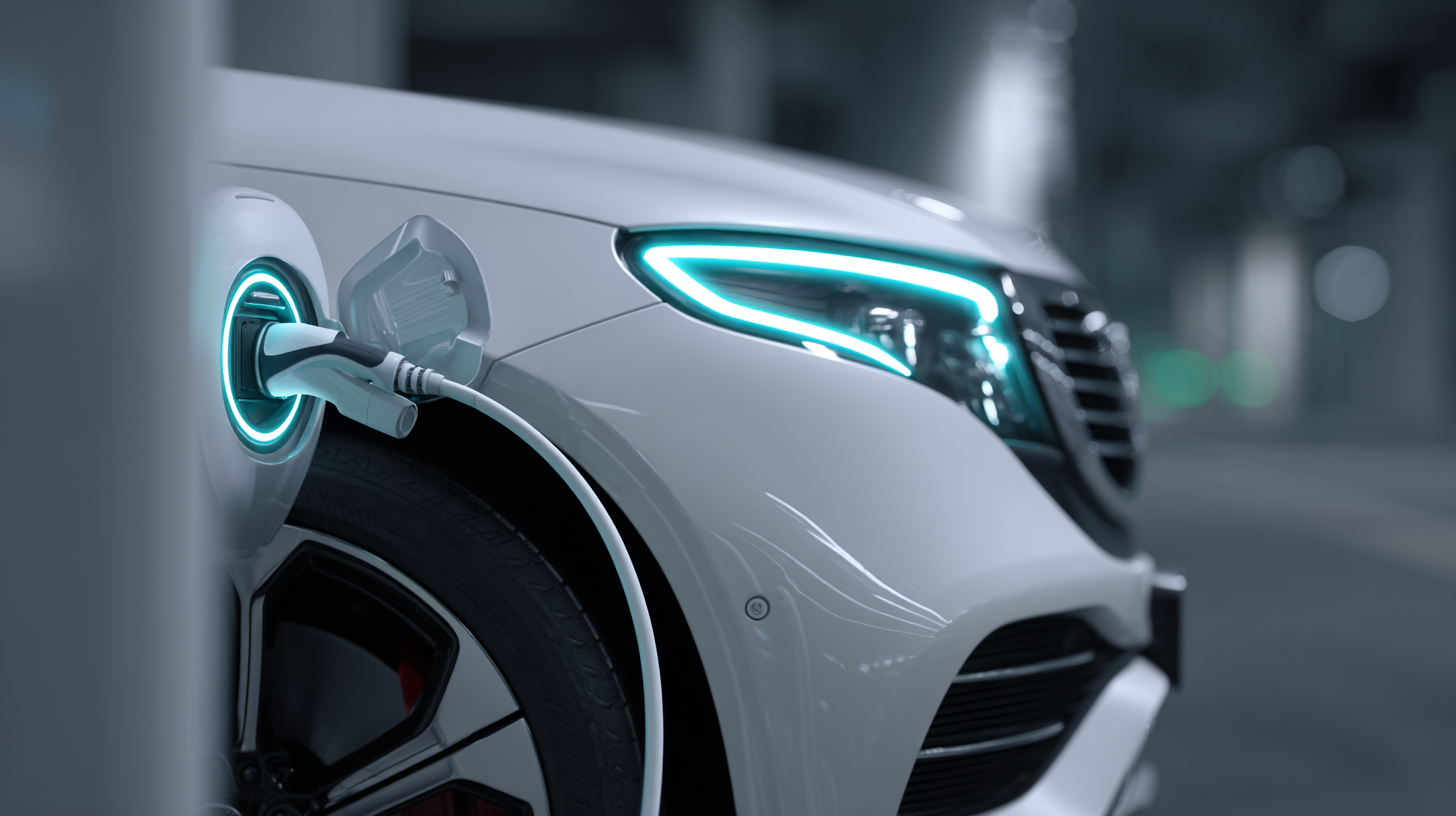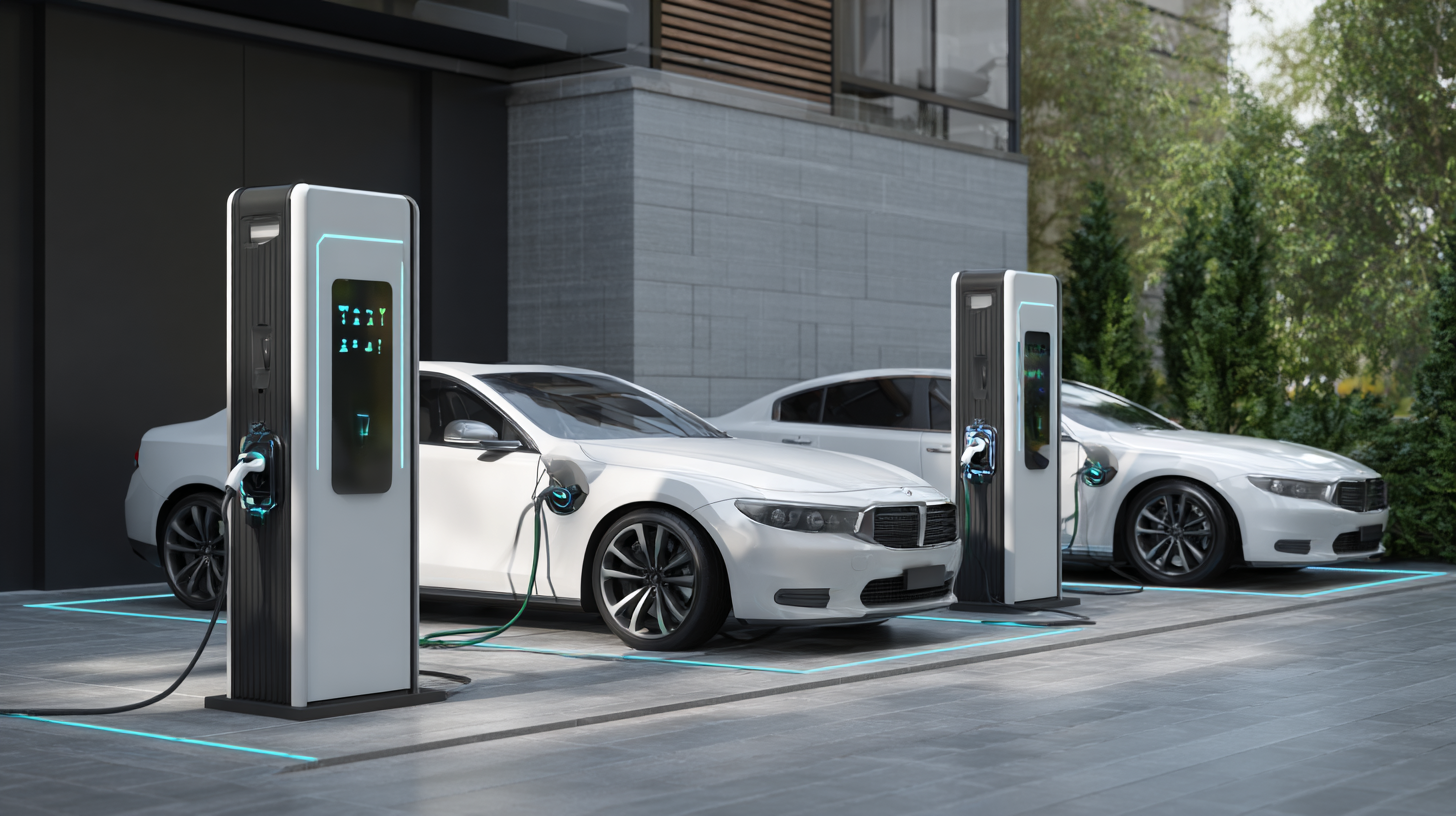As the automotive industry rapidly shifts towards electrification, home car charging points have emerged as a critical infrastructure component, facilitating the widespread adoption of electric vehicles (EVs). According to a recent report by the International Energy Agency, global electric car sales surged to 10 million units by 2022, accounting for nearly 14% of total vehicle sales, illustrating the growing demand for convenient charging solutions. In China, the world's largest market for electric vehicles, the government aims to establish 4.8 million public and private charging points by 2025, emphasizing the importance of home charging stations in supporting this transition.

Innovative technologies are at the forefront of this evolution, leading to more efficient and user-friendly home car charging solutions that cater to the dynamic needs of consumers. As manufacturers and energy providers develop strategic partnerships and promote smarter charging systems, the future of home electric vehicle charging not only promises enhanced convenience but also paves the way for sustainable energy usage and improved grid resilience.
As the electric vehicle (EV) market continues to grow, innovative charging solutions are pivotal in shaping the future of home electric vehicle charging. The global onboard charger market is projected to expand significantly, with an estimated value increase from $6.93 billion in 2025 to $22.89 billion by 2032, highlighting an impressive compound annual growth rate (CAGR) of 18.6%. As consumers increasingly adopt EVs, home charging stations are becoming a fundamental aspect of everyday convenience, ensuring that drivers can efficiently recharge their vehicles overnight.
Tips for homeowners considering EV charging installations include evaluating the power capacity of their electrical system to support additional loads. It's also beneficial to explore various charging options, such as Level 2 chargers, which offer faster charging times than standard household outlets. Additionally, integrating smart charging technologies can provide users with better control over charging schedules and costs, helping to maximize savings during off-peak electricity hours.
Moreover, the growing trend of wireless charging solutions presents an exciting opportunity for the future of home EV charging. By incorporating wireless charging into smart home systems, users can simplify the charging process, making it even more convenient. As industry leaders invest in these technologies, homeowners should stay informed about the rapidly evolving landscape of charging solutions to make the best decisions for their needs.
| Country | Number of EV Charging Stations | Percentage of Home Chargers | Growth Rate (2023-2025) | Market Value (USD Billion) |
|---|---|---|---|---|
| USA | 100,000 | 70% | 25% | 10.5 |
| Germany | 60,000 | 65% | 20% | 7.8 |
| China | 250,000 | 80% | 30% | 15.0 |
| UK | 40,000 | 75% | 15% | 5.0 |
| France | 30,000 | 68% | 18% | 4.5 |
As the popularity of electric vehicles (EVs) continues to surge, advancements in home EV chargers are transforming the charging experience for consumers. Recent technological innovations focus on enhancing the speed and efficiency of these chargers, making it easier than ever for homeowners to power their vehicles effectively. High-speed charging options, such as Level 2 chargers, are designed to reduce charging time significantly, allowing users to fully charge their vehicles in just a few hours. This convenience aligns with the fast-paced lifestyle of modern users, who demand both speed and reliability from their home charging solutions.

Equally important are developments in energy management systems that optimize the use of renewable energy sources. Smart chargers now integrate with home solar power systems, allowing EV owners to charge their vehicles using clean energy while minimizing costs. Features like scheduling and remote monitoring enable users to take full advantage of these systems, reducing their carbon footprint and energy bills while making ownership of an electric vehicle more practical. These innovations not only improve the efficiency of home EV chargers but also contribute to a more sustainable future.
As the adoption of electric vehicles (EVs) accelerates, the importance of user experience in charging solutions becomes paramount. Recent trends indicate that intuitive charging interfaces can significantly enhance consumer satisfaction and streamline the overall charging process. A report from an industry research group highlights that user-friendly designs are not just aesthetically pleasing but crucial for usability, as insights from a community of operators and vehicle owners reveal a growing expectation for both functionality and visual appeal in charging stations.
Moreover, technological advancements showcased at major events like CES underscore the shift toward integrated solutions that meet consumers' diverse needs. Innovations, such as built-in cables and full-scene charging capabilities, are expected to reshape user interactions with EV charging systems. These developments suggest a stronger focus on creating a seamless connection between the user and the technology, with projected market growth in gesture recognition—expected to exceed $19.8 billion by 2032—indicating a rising demand for more sophisticated, yet simple-to-navigate interfaces in the charging ecosystem. This drive for enhanced user experience not only promotes more efficient charging but also plays a pivotal role in the broader acceptance and adoption of electric vehicles.

As electric vehicles (EVs) become increasingly popular, the need for efficient home charging solutions is more pertinent than ever. Government incentives play a pivotal role in encouraging consumers to adopt these innovative technologies. By offering tax credits, rebates, and grants for home charging stations, authorities can significantly reduce the cost barrier that often deters potential EV owners.
This not only makes the transition to electric vehicles more attractive but also supports a greener environment.
Tip: To maximize the benefits of government incentives, research local and federal programs before making any purchases. Knowing what incentives are available can help you save money and potentially increase the return on your investment in a home EV charging station.
In addition to financial incentives, consumer education is crucial in the adoption of home electric vehicle charging technologies. Providing clear information about the benefits of home charging, installation processes, and maintenance will help demystify the technology for potential users. Engaging educational campaigns that include workshops, online tutorials, and community events will empower consumers to embrace this shift confidently.
Tip: Stay informed through reputable sources and community programs. Joining local EV groups or forums can provide valuable insights and support from fellow EV owners, making your charging experience smoother and more enjoyable.
As the popularity of electric vehicles (EVs) continues to rise, the integration of renewable energy sources into home EV charging solutions is proving to be a game-changer. Solar panels, wind turbines, and even home battery systems are becoming increasingly accessible, allowing homeowners to charge their vehicles sustainably. This shift not only reduces reliance on fossil fuels but also minimizes the carbon footprint associated with transportation. By harnessing renewable energy, EV owners can enjoy significant savings on their electricity bills while contributing to a cleaner environment.
The success of renewable energy integration in home charging solutions relies heavily on smart technologies and user-friendly systems. Intelligent charging stations that optimize energy use based on real-time data and weather forecasts can maximize the efficiency of solar or wind energy harnessed at home. Furthermore, the advent of energy management software enables homeowners to track their energy consumption, making it easier to adjust charging schedules based on peak and off-peak rates. These innovative technologies not only enhance the charging experience but also incentivize EV adoption by highlighting the benefits of transitioning to renewable energy sources for everyday needs.
